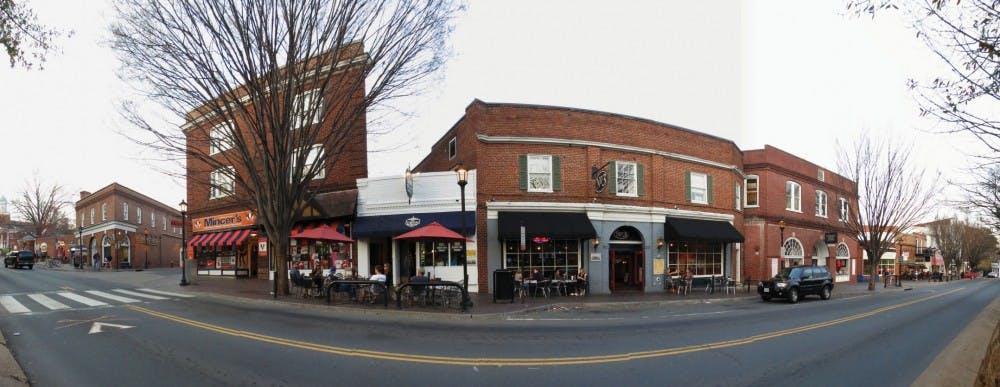The Virginia Department of Alcoholic Beverage Control recently decided to increase enforcement measures around the University, and their new policies have the potential to affect students all around Grounds.
ABC agents spoke with Dean of Students Allen Groves and other associate deans of students during spring break about their new policies, which will include increased enforcement, especially on the Corner and in areas with a high concentrations of fraternity and sorority houses. ABC was unable to comment on specific agent activity or targeted fraternities.
“The University has nothing to do with the decision of making us a ‘hotspot’ — every university struggles with the issue of underage drinking, and it is helpful for us to know about ABC’s increased enforcement,” said Nicole Eramo, an associate dean of students.
Eramo explained that the University takes an educational approach to combat underage drinking rather than a punitively-focused one. This educational approach goes hand in hand with the University’s mission to support its students and provide them with a learning environment, Eramo said. “We focus on relaying the negative impact of alcohol use instead of the punitive approach [used] by ABC.” she said.
ABC spokesperson Betty Gettings said the department also recognizes the need for the focus to shift to increased alcohol education. ABC, however, plans to target its education efforts at alcohol suppliers.
“We are now offering four different sessions for the licensees that include improved strategies for detecting fake identification cards, avoiding underage selling, and ending service for intoxicated people,” Gettings said.
Gettings underlined that ABC’s primary goal was not to arrest offenders, but rather to further public safety. “We are looking to improve public safety by enforcing alcohol laws,” she said. “We’d rather have compliance … [but] no matter the area, when alcohol laws are broken, they may result in arrest.”
Despite their best efforts, however, bars on the Corner can sometimes struggle to detect fake IDs or determine if someone is too inebriated to be legally served alcohol, Trinity Irish Pub manager Michael Tuohey said.
“Over-serving people has always been an issue, and one of our policies includes refusing entrance to those already overly intoxicated,” Tuohey said. “We ask for a valid, government issued ID or passport. Our servers are trained to detect fake IDs and are also asked to be watchful for those who look underage, even if they’ve passed through the door. Bartender can ask for a second ID if customers look underage.”
Punishments for alcohol related offenses can be targeted at both individuals and establishments. Individuals who illegally consume or distribute alcohol can face criminal charges which go through the legal system, while establishments can face heavy fines or suspensions of licenses, which is determined by an ABC hearing.
“ABC hearings, like many administrative courts, work on preponderance of evidence, meaning that overwhelming evidence is used for charges to be substantiated,” Gettings said.
Bars like Trinity stand to lose a lot for committing alcohol violations, and as a result they are vigilant of who and how they serve.
“ABC comes once a semester to train staff,” Tuohey said. “An alcohol violation entails a $2,500 fine to the server and then an additional $2,500 fined to the bar, so we take alcohol laws seriously.”
Tuohey said the increased enforcement seemed to have discouraged some from coming to his bar recently. “We’ve noticed a decrease in the use of fakes in the past month with ABC, along with customers in general being more careful with the amount of their consumption,” he said.
The University is planning its own education initiative leading up to Foxfield weekend, which will aim to reduce the number of arrests at the event. Eramo said that more arrests meant more work for the University, so increasing compliance is an ideal solution.
“The increased enforcement increases our workload if more students are charged with alcohol violations, but we are grateful for ABC coming and informing us,” Eramo said. “We are looking for ways for ABC to better connect with the students, and an idea is to get the [University] Judiciary Committee involved.”






